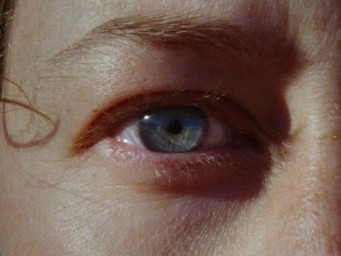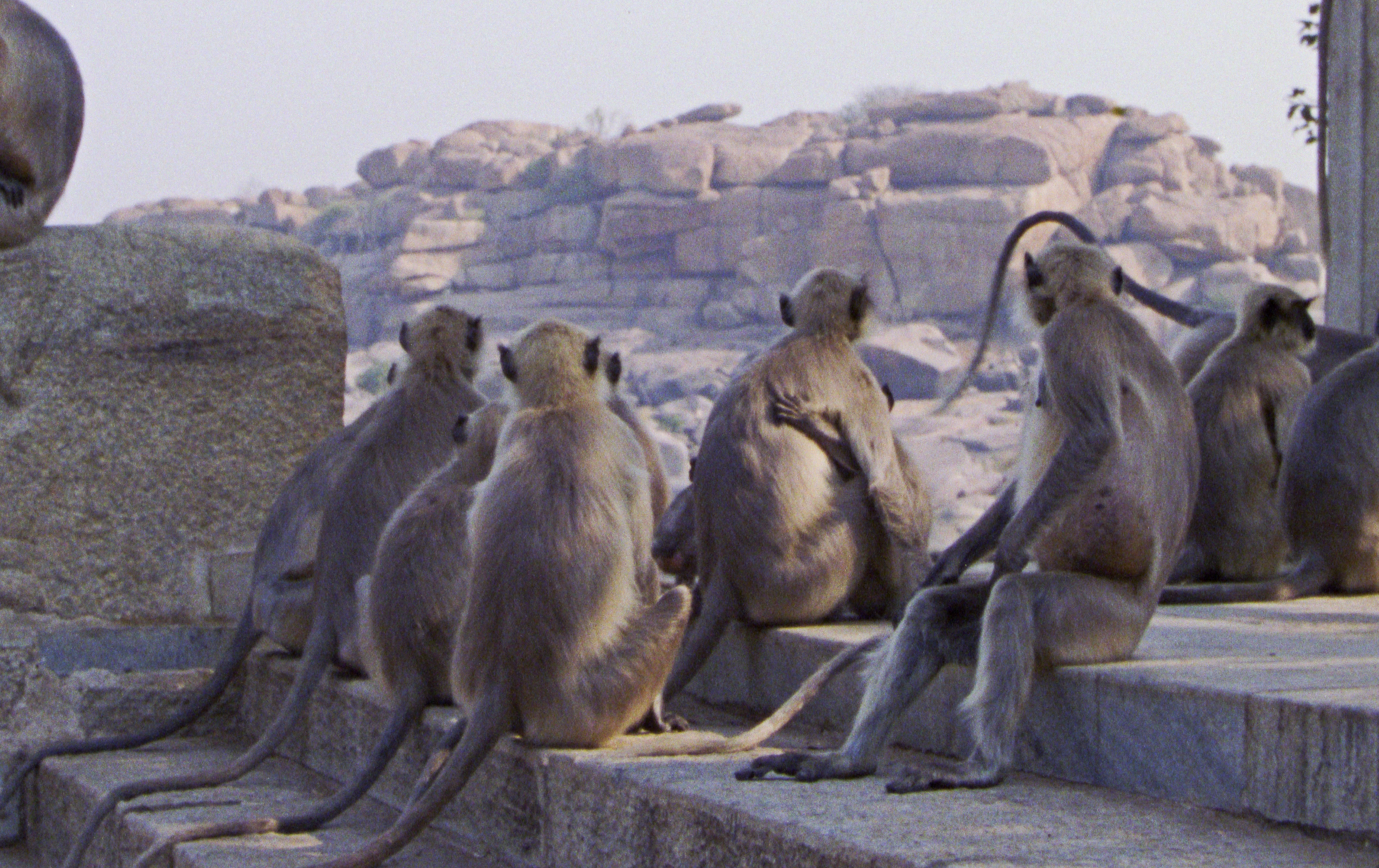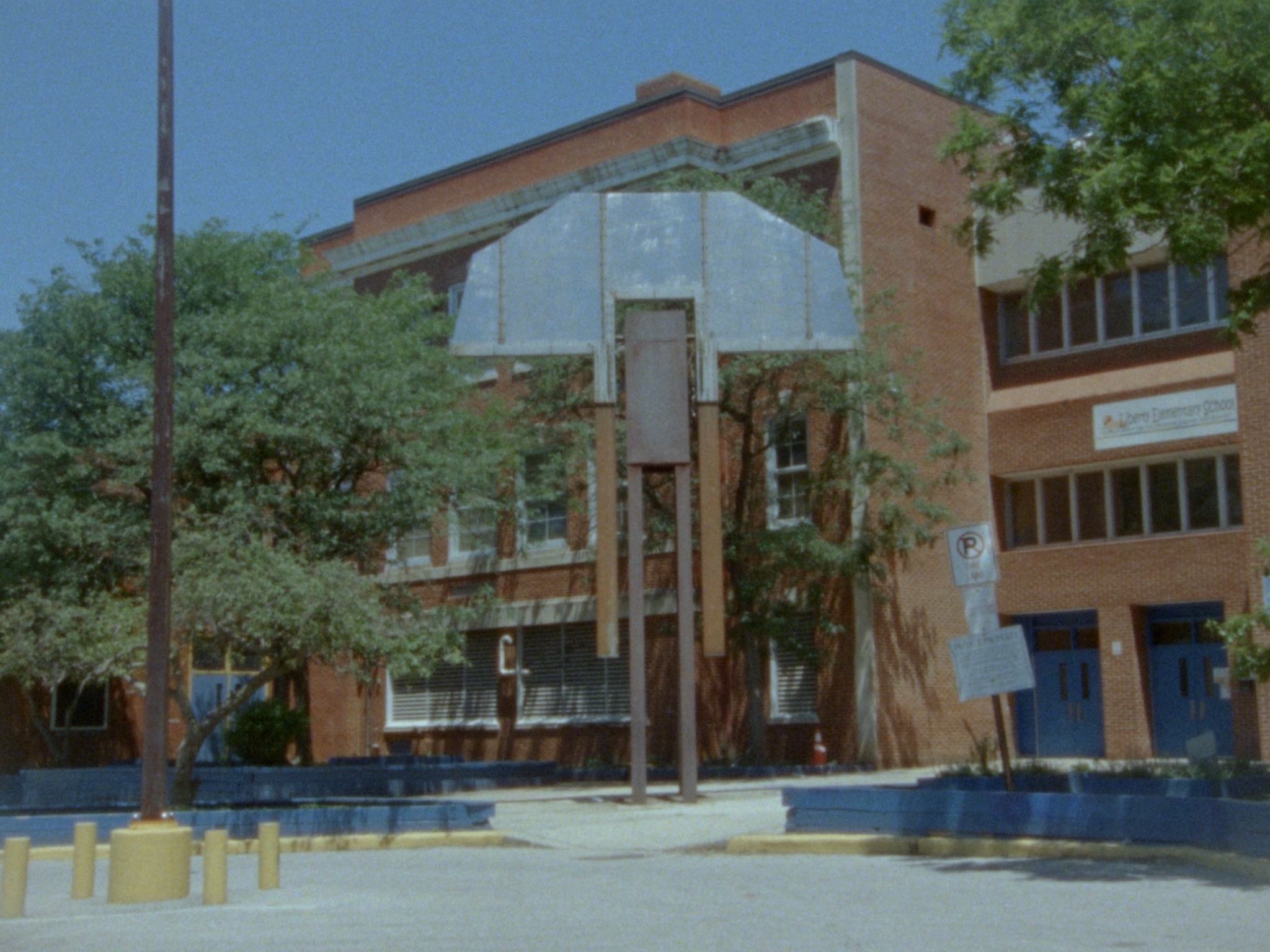Finally I Got Close
Notes from the journal
Erica Van Horn
![]()
Public
Surfaces
Director GILLIAN WALDO
Year 2023
Country USA

Becoming Landscape
Director EVA GIOLO
Year 2023
Country BELGIUM, CANADA

In Praise of Slowness
Director HICHAM GARDAF
Year 2023
Country UK, ITALY

Slow Shift
Director SHAMBAVI KAUL
Year 2023
Country INDIA, USA
We
invited artist and writer Erica Van Horn to respond to this programme of films.
Van Horn has been keeping a record of her life in rural Co. Tipperary,
Ireland online at Some
Notes for Living Locally since 2007. She has collated five pieces from
the journal that speak to the focus on detail she admired in the programme:
“Thinking about the films, I recognised that I was simply locating my own
interests within them. Each camera focused carefully on small things. There
need not be a complete narrative if such focus is right. Here, I share
some fragments of my own landscape, a place where not very much happens.”
12 January
There is not a lot of variety in the things I see when I walk out in winter. At this time of year there is little animal activity. The cows are all under cover. I do not know where the sheep are. Most days the things I see are much the same as they were the day before. Most days I never meet another person. I have to take different routes to provide myself with variety. Today I got excited when I saw something on the road up ahead of me. I was looking at it for a long time as I approached. I was keeping an eye on it in case it moved before I got close enough to identify it. I could not decide what it was. Finally I got close. The object had not moved. It was a sugar beet. It was not a whole sugar beet, but only half a sugar beet. The other half must have gone off in the machine that gathered them up in the field. This half might have fallen off a trailer. It gave me something to look at and something to think about. I am still excited about it.
26 February
I met an old man as I walked down from The Boulders. He had been up on the mountain all morning checking on his sheep. He was driving a little pick-up truck with a very small bed behind the tiny cab. It had no road registration. It was more like a dune buggy than a road truck. He had a sheep dog squeezed onto the front seat beside him and a dead lamb in the back. The back was small enough that the lamb’s body filled up the whole space. The space was the size of a wheelbarrow. The farmer was dressed in the way of older farmers. He was not wearing a fleece nor a T-shirt nor blue jeans. He wore the jacket of a wool suit over his pull-over sweater with a white checked button down collar showing at his neck. His trousers were also made of wool. They were the trousers of a suit but they were not made of the same wool as the jacket. His trousers were tucked into his high rubber boots. Nothing he had on was clean but everything was tidy. These were his working clothes. I commented that I had not seen him, even from a distance, for a long time. We agreed that it was at least six months since we last met. He explained to me that what happens is that We Lose Each Other In The Landscape.
11 March
There are plenty of signs in nature but there are rarely words to read as I walk the fields and lanes. I miss the barrage of language that people in towns and cities take for granted. Perhaps town dwellers find so much language annoying. There is plenty of machinery to look at. I am curious about a lot of the machines because I rarely know what they are being used for nor what a covered trailer is carrying. I am curious about these functions but not curious enough to ask questions and to learn the facts about them. I enjoy considering my own solutions as I walk.
21 August
The early evening silence is enormous. It takes a while to register that the deep quiet is because the wind has stopped. There is no wind. There is not even a small breeze. After two days of howling and thrashing and roaring, everything is silent. We have been beaten and buffeted by gusts of noisy wind since Wednesday night when Storm Ellen hit. Branches and entire trees have fallen down, roofs have blown off, fences have been blown down and electricity has been lost all over the country. We have been hit harder than usual. The storms off the Atlantic usually hit the west of the country first and they are weakened by the time they reach Tipperary. Still, we got off lightly. We did not lose electricity as many nearby homes did. Along with the gusting winds, we had thunder and lightening and rain off and on throughout the days and nights. There are many branches to pick up. Things blew all over the place. Small dead animals and dead birds are strewn everywhere. They were tossed and smashed into walls and trees. The roads are lined with huge broken trees and branches. Men and machines are working to cut them into manageable pieces. I rang Tommie to see how he was after the big storm. He said he did not hear a thing. He slept like a baby all though the worst of the winds. He said “Giving these storms a name like Ellen is a trick to make us less frightened. Sure, we all know an Ellen, don’t we?”
13 September
Michael stopped in the road. His pick-up truck was pulling a closed trailer with a bull in it. He was taking the bull to another farm where it would be turned out into a field with females. He shut off his engine. He was in no hurry. As we spoke, with me standing on the road and him sitting inside in his truck, the bull began to throw himself around. The trailer rocked from side to side. The force of the bull’s weight thrashing around inside the trailer made the truck move. Even with the hand brake on, Michael’s truck was getting pushed and jolted along. I could not believe that the truck could be rammed forward by the sheer force of a bull in the back. Michael was neither surprised nor worried about the energetic antics of the bull. We continued our conversation until another vehicle came along. Michael told me, “We have to move now because We Are Blocking The Road With Our Words.”
Erica Van Horn is an American artist (and writer, editor, printer, bookmaker, and publisher) long transplanted to Ireland where she runs Coracle Press with her husband Simon Cutts. Her outsider’s acumen is trained on the minutiae of daily life, collecting visual and textual details of what is often overlooked or seemingly insignificant. The Book Remembers Everything: The Work of Erica Van Horn, was shown at the Beinecke Rare Book and Manuscript Library at Yale in 2010, where there is an archive of her books and papers.
This text was commissioned by Open City Documentary Festival to accompany the programme Becoming Landscape at Close-Up Cinema, 28 April 2024.
12 January
There is not a lot of variety in the things I see when I walk out in winter. At this time of year there is little animal activity. The cows are all under cover. I do not know where the sheep are. Most days the things I see are much the same as they were the day before. Most days I never meet another person. I have to take different routes to provide myself with variety. Today I got excited when I saw something on the road up ahead of me. I was looking at it for a long time as I approached. I was keeping an eye on it in case it moved before I got close enough to identify it. I could not decide what it was. Finally I got close. The object had not moved. It was a sugar beet. It was not a whole sugar beet, but only half a sugar beet. The other half must have gone off in the machine that gathered them up in the field. This half might have fallen off a trailer. It gave me something to look at and something to think about. I am still excited about it.
26 February
I met an old man as I walked down from The Boulders. He had been up on the mountain all morning checking on his sheep. He was driving a little pick-up truck with a very small bed behind the tiny cab. It had no road registration. It was more like a dune buggy than a road truck. He had a sheep dog squeezed onto the front seat beside him and a dead lamb in the back. The back was small enough that the lamb’s body filled up the whole space. The space was the size of a wheelbarrow. The farmer was dressed in the way of older farmers. He was not wearing a fleece nor a T-shirt nor blue jeans. He wore the jacket of a wool suit over his pull-over sweater with a white checked button down collar showing at his neck. His trousers were also made of wool. They were the trousers of a suit but they were not made of the same wool as the jacket. His trousers were tucked into his high rubber boots. Nothing he had on was clean but everything was tidy. These were his working clothes. I commented that I had not seen him, even from a distance, for a long time. We agreed that it was at least six months since we last met. He explained to me that what happens is that We Lose Each Other In The Landscape.
11 March
There are plenty of signs in nature but there are rarely words to read as I walk the fields and lanes. I miss the barrage of language that people in towns and cities take for granted. Perhaps town dwellers find so much language annoying. There is plenty of machinery to look at. I am curious about a lot of the machines because I rarely know what they are being used for nor what a covered trailer is carrying. I am curious about these functions but not curious enough to ask questions and to learn the facts about them. I enjoy considering my own solutions as I walk.
21 August
The early evening silence is enormous. It takes a while to register that the deep quiet is because the wind has stopped. There is no wind. There is not even a small breeze. After two days of howling and thrashing and roaring, everything is silent. We have been beaten and buffeted by gusts of noisy wind since Wednesday night when Storm Ellen hit. Branches and entire trees have fallen down, roofs have blown off, fences have been blown down and electricity has been lost all over the country. We have been hit harder than usual. The storms off the Atlantic usually hit the west of the country first and they are weakened by the time they reach Tipperary. Still, we got off lightly. We did not lose electricity as many nearby homes did. Along with the gusting winds, we had thunder and lightening and rain off and on throughout the days and nights. There are many branches to pick up. Things blew all over the place. Small dead animals and dead birds are strewn everywhere. They were tossed and smashed into walls and trees. The roads are lined with huge broken trees and branches. Men and machines are working to cut them into manageable pieces. I rang Tommie to see how he was after the big storm. He said he did not hear a thing. He slept like a baby all though the worst of the winds. He said “Giving these storms a name like Ellen is a trick to make us less frightened. Sure, we all know an Ellen, don’t we?”
13 September
Michael stopped in the road. His pick-up truck was pulling a closed trailer with a bull in it. He was taking the bull to another farm where it would be turned out into a field with females. He shut off his engine. He was in no hurry. As we spoke, with me standing on the road and him sitting inside in his truck, the bull began to throw himself around. The trailer rocked from side to side. The force of the bull’s weight thrashing around inside the trailer made the truck move. Even with the hand brake on, Michael’s truck was getting pushed and jolted along. I could not believe that the truck could be rammed forward by the sheer force of a bull in the back. Michael was neither surprised nor worried about the energetic antics of the bull. We continued our conversation until another vehicle came along. Michael told me, “We have to move now because We Are Blocking The Road With Our Words.”
Erica Van Horn is an American artist (and writer, editor, printer, bookmaker, and publisher) long transplanted to Ireland where she runs Coracle Press with her husband Simon Cutts. Her outsider’s acumen is trained on the minutiae of daily life, collecting visual and textual details of what is often overlooked or seemingly insignificant. The Book Remembers Everything: The Work of Erica Van Horn, was shown at the Beinecke Rare Book and Manuscript Library at Yale in 2010, where there is an archive of her books and papers.
This text was commissioned by Open City Documentary Festival to accompany the programme Becoming Landscape at Close-Up Cinema, 28 April 2024.
